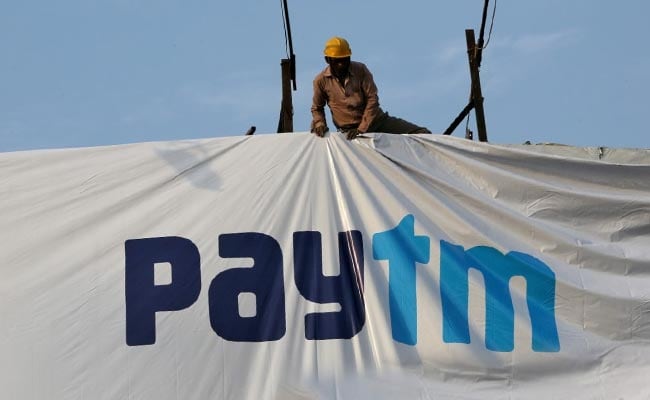After Paytm Flop Show, India Tightens IPO Valuation Scrutiny: Report
[ad_1]

The Paytm listing, though, raised concerns about valuations.
New Delhi:
India has tightened scrutiny of IPO-bound firms by questioning how key internal business metrics are used to arrive at valuations, unsettling bankers and companies which fear delays in listing plans, sources with direct knowledge told Reuters.
India’s push comes after the flop listing of SoftBank-backed payments firm Paytm’s $2.5 billion IPO in November which sparked criticism of lax oversight of how loss-making companies price issues at what some say are lofty valuations.
The Securities and Exchange Board of India (SEBI) last month flagged concerns in proposing stricter disclosures, saying more and more new-age tech firms which “generally remain loss making for a longer period” were filing for IPOs, and traditional financial disclosures “may not aid investors.”
But even before the proposal is finalised, SEBI has in recent weeks asked many companies to get their non-financial metrics — KPIs, or key performance indicators — audited, and then explain how they were used to arrive at an IPO’s valuation, five banking and legal sources said.
Typically for a tech or app-based startup, KPIs could be figures like the number of downloads or average time spent on a platform — metrics sources said are disclosed but difficult to audit or link to a company’s valuation.
SEBI is asking us to “justify the valuation,” said one Indian lawyer advising several companies eyeing IPOs, adding it was “creating uncertainty and increasing cost of compliance.”
SEBI did not respond to a request for comment.
Regulators in major markets including Hong Kong do follow practices that subject companies to tighter scrutiny about their business practices and financials, but they don’t usually make granular checks on valuation metrics.
One document from February containing SEBI’s remarks to an Indian IPO-bound company, seen by Reuters, asked for “explanation regarding how KPIs form basis” for arriving at the IPO issue price, adding they should be “certified by a statutory auditor.”
Indian digital healthcare platform PharmEasy, which had filed papers for a $818 million IPO in November, is one company which was hit by such scrutiny: one source with direct knowledge said the company raised concerns with SEBI about auditing and supplying such details, and is likely to get some relaxations. PharmEasy didn’t respond to a request for comment.
It is not clear if the additional information requested by SEBI would be released to potential investors.
Pranav Pai, founding partner at Indian VC firm 3one4 Capital, said SEBI was not setting any limits on valuations and only “bringing parity of information” between profitable and loss-making companies targeting IPOs.
“SEBI is not asking for anything out of the ordinary,” said Pai.
Growing Concerns, Hot IPO Market
The tighter scrutiny comes when India’s startups and other companies have become a darling for foreign investors and increasingly hit the markets.
Last year, more than 60 companies – including high-profile tech ones – made their market debut and raised more than $13.5 billion, with many like ride-hailing firm Ola and hotel aggregator Oyo still in pipeline.
The Paytm listing, though, raised concerns about valuations. After tanking on listing day, the Indian payment firm’s shares are currently trading 64% below their issue price, and some fund managers had said the episode will “hopefully bring some realism to valuations.”
The concerns are widespread among bankers, lawyers and companies as the scrutiny is ongoing, even as SEBI’s proposal on whether such KPI-related disclosures should be enforced or not was open for public comments until March 5, three sources added.
The proposal stated key accounting ratios like price-to-earnings were not enough to assess loss-making firms’ businesses, adding SEBI wanted to get audit and disclosure of “all material KPIs” shared with pre-IPO investors for three years.
“Many investors, founders and merchant banks have reservations with SEBI’s proposal,” said Vivek Gupta, National Head for M&A at KPMG in India.
Investment bankers from Bank of America and India’s Kotak Mahindra both have raised concerns with SEBI about such planned scrutiny of IPOs, according to sources. They declined comment.
One senior executive at an Indian start-up planning an IPO said his company was worried.
“This will further encourage future generations of startups to incorporate outside India so they can easily list overseas.”
(Except for the headline, this story has not been edited by NDTV staff and is published from a syndicated feed.)
[ad_2]
Source link










